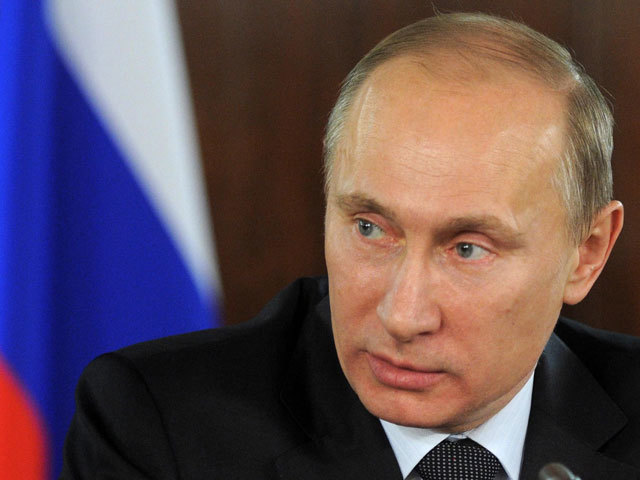
As Russian military planes pound Syria, the ruble, stocks and bonds are projecting an uncommon level of giddiness on the part of traders.
A week after Vladimir Putin embarked on air strikes on Islamic State, the attacks are infuriating Turkey, NATO calls them a “troubling escalation” and the U.K. says the Kremlin is making the situation in the region “much more dangerous.” Even so, the ruble is enjoying its best start to an October on record, and the RTS stock index is having its strongest showing in a decade.
The reason? Oil.
The correlation between Russia’s currency and the price of its main export is at an all-time high. Add to that the surge in appetite for emerging-market assets as traders push back the timing of an interest-rate increase by the Federal Reserve. Some investors are unfazed by Russia’s maneuvering in Syria or sanctions over its role in Ukraine.
“The really key variable is the oil price,” Paul McNamara, a fund manager overseeing $4.5 billion at GAM UK Ltd., said by e-mail from London. “As long as oil is strong, Russia will be fine.”
Since the bombing began on Sept. 30, the ruble is the best- performing currency in emerging markets after Indonesia’s rupiah and Colombia’s peso, while its 8.4 percent gain this week is the strongest among currencies worldwide after the rupiah. It’s never climbed more in the first eight days of October, data compiled by Bloomberg show.
Eighty percent of those price movements has to do with oil, according to Luis Costa, head of fixed-income strategy for the CEEMEA region at Citigroup Inc. in London. The ruble’s swings were the closest to crude’s on record Tuesday, with the correlation at 0.86. A reading of 1 would mean they’re in lockstep.
Brent climbed as much as 1.9 percent on Friday to an Aug. 31 high of $54.05 per barrel. That spurred gains of 0.8 percent by 2:25 p.m. in Moscow for the ruble, which has advanced every day this week.
Russian assets also benefited from a rally in emerging markets this month, with the RTS index of stocks climbing 12 percent, reversing this year’s losses. Bonds rose, sending five- year yields down 81 basis points to 10.61 percent. Only Indonesia posted a bigger drop among peers in developing economies.
Improved investor sentiment paved the way this week for natural-gas producer Gazprom PJSC and GMK Norilsk Nickel PJSC, Russia’s largest miner, to become the country’s first companies to sell benchmark Eurobonds this year.
“Is now a good time to buy?” said Bryan Carter, a money manager at Acadian Asset Management. “If you believe oil will continue rising, then yes, Russia has more room to benefit.”